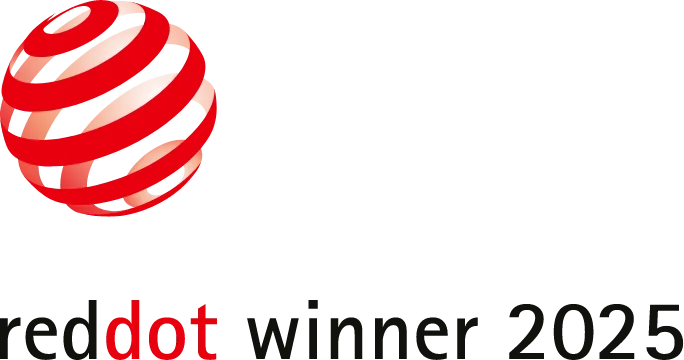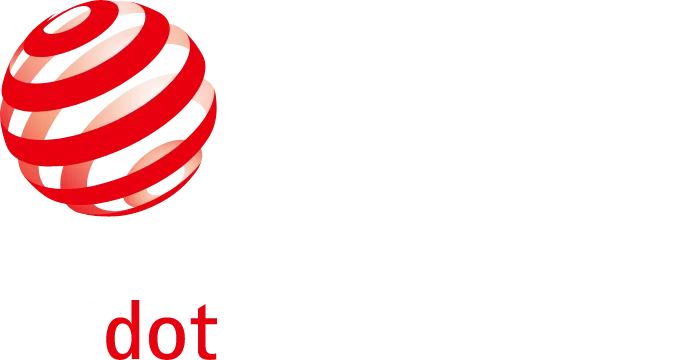In the first edition of the brot & salz Buzzword Bakery, there are well-portioned morsels of knowledge on the topic of employer branding - mmmmh, that tastes good!
What is an employer brand?
In short, the employer brand is the entirety of the statements and value propositions that an employer makes about itself. The foundation of employer branding is often an EVP (Employer Value Proposition) and an employer brand story. On the basis of a well-conceived employer identity, a strong employer branding campaign can be created that not only increases the direct intention to apply, but also raises awareness of a brand and the perceived attractiveness on the market. An employer brand is therefore not only a strategic tool, but should above all be a reflection of the corporate culture.
Employees are not only looking for attractive jobs, but also for employers who are not afraid to stand up for themselves and communicate their values and characteristics openly and unambiguously. Companies that meet these expectations can use their employer brand as a powerful competitive advantage.
After all, proactive expectation management not only creates differentiation in the market, but also lays the foundation for genuine identification of current and future employees with their employer.
What (the hell) is the Talent Brand?
Often used, never really explained, but (really!) important. The talent brand is made up of all the statements made by current and former employees of a company about their employer. While the employer brand can be controlled, the talent brand is an honest reflection of how employees experience the employer.
Companies should therefore be regularly present on popular online review portals such as Kununu or Glassdoor in order to feel the pulse of the workforce and take note of both praise and criticism. LinkedIn profiles of current employees should also be kept on the radar, as they are often an important source of information that is frequently used by recruits.
You can also occasionally stumble across real gold veins: Authentic success stories told by employees on their own initiative have a strong signaling effect and their use in internal communication and external recruitment campaigns can build a strong bridge between talent and employer brand.
Dissonance Disaster
The dissonance disaster occurs when the statements and value propositions of the employer brand do not match those of the talent brand or when they are not (sufficiently) validated. If such a dissonance occurs, this can have serious consequences for recruitment efforts and employee satisfaction and can also have a negative impact on the general image of a company through public exposure, especially in social media.
Such dissonances often arise when externally communicated campaigns paint an idealized picture that cannot be experienced in everyday working life. Companies should therefore ensure that promises such as "flat hierarchies" or "work-life balance" are not made because it is assumed that the target group expects them, but only if they are actually lived and kept. A good strategy is to create internal feedback mechanisms and weave their results into the development of external messages.
The courage to be authentic, transparency and an open ear for employees are key when it comes to avoiding dissonance and remaining credible in the long term.
Social Brand Ambassadors
Social media plays a crucial role in spreading authentic success stories in employees' first and second-degree networks. Companies that tell their stories on such platforms gain more brand ambassadors and followers in the talent community. A positive snowball effect can be achieved if this commitment is not only valued but also actively encouraged.
Social brand ambassadors can be recruited through targeted programs and motivated to tell their individual stories. Regular internal campaigns in which employees who identify with their job and employer share their personal experiences ensure greater authenticity and reach.
Such stories also create emotional connections and convey that there are real people behind the brand, whose statements potential employees tend to trust significantly more than the employer branding promises made by companies.
The "next normal"
COVID was the catalyst for the inevitable change in the reality of work towards WFH and hybrid models. What were genuine arguments in the battle for "human resources" just a few years ago are now (quite rightly) taken for granted. After all, the "next normal" should not be uncharted territory for modern-thinking companies that take an honest look at the working and living realities of their employees.
For example, those who offer a flexible work schedule between remote and office are no longer perceived as attractive, but rather those who can demonstrate a resilient strategy for dealing with the blurred boundary between work and private life in a healthy way. An example of this strategy could be a structured wellness program that addresses the needs of remote employees and focuses on mental health.
Companies that actively shape this hybrid reality and respond to the new needs of their teams will clearly set themselves apart from the competition. The "next normal" is a great opportunity for employers to position themselves effectively, modernize their employer brand and, in the best case, create the basis for validating it through talent brand activities.
The Social Office
The role of the office is also changing in the "next normal". Today, the office is no longer just a place where good work is done, but rather a platform for team building, collaboration and exchange. A social platform that offers real added value in contrast to isolated working from home, which is often perceived as tedious. We are witnessing the metamorphosis of the office into a place where the benefits of the simultaneous physical presence of employees are fully exploited.
Modern office concepts are therefore increasingly focusing on open spaces that encourage interaction, as well as well-equipped retreats that facilitate creative teamwork. In the course of this reorientation, some companies have radically abolished conventional single or double offices and introduced hubs where meetings, workshops or team events take place, while focused individual work remains remote. Companies should seize the opportunity to design their space as a place of inspiration that focuses on the needs of employees as a community.
While productivity used to be the mantra in the office, today it is collaboration, creativity and social life - work can be done from home at any time.
Money Over Everything (Again)
The psychological effects of the climate crisis, pandemic, inflation and war are of course not bypassing the younger generation. They have a major impact on their lives and therefore naturally also on their mindset and preferences when it comes to choosing a job after graduation. A recent Stepstone survey confirms that salary and the prospect of financial security are the top criteria for current students when choosing a job. This may feel like a return to "old values", but it is by no means a license to bring the recruiting strategies of the 1990s back out of the drawer.
It also shows that flexible benefits such as WFH are valued, but are no longer perceived as exceptional - they have become standard and are even becoming less attractive compared to other criteria. At the same time, we are seeing the revival of capital-forming benefits, which millennials still ridicule as stuffy. Companies that now score points with clearly communicated, attractive remuneration models and long-term prospects can stand out in a highly competitive market.
The 10 most important criteria for students when choosing a job
(Stepstone survey Sep 2021 to Mar 2022)
- Attractive basic salary
- High income in the future
- Diverse work tasks
- Secure employment
- Flexible working conditions
- A friendly working environment
- Professional training & further development
- Promotion of work-life balance
- Promotion of future further training
- Respect for employees
F*** Your Values
EVPs and well-constructed employer branding campaigns are a door opener for the recruitment process that arouses interest. However, this is where talent's dissonance antennae are set to the highest level. Recent studies and interview reports have shown that almost no one chooses an employer because of its values, which are often far too abstract and universally formulated.
This is understandable, because applicants have absolutely nothing to do with the development of these values - even if they resonate with them in principle. They are not personally connected to them and it is becoming increasingly difficult to find employees who simply fall in line and salute them - if this was ever desirable.
What counts is everyday life and the question of whether values are not just written on posters on the wall, but are actually visible in our interactions. It turns out that values are not the reason why someone knocks on the door, but the lived culture ensures that they stay. Employer branding should therefore focus less on selling abstract values and more on establishing a narrative that is brought to life with authentic stories from employees' everyday lives.
Double A Energy
Autonomy & Appreciation - In the war for talent, it's no longer just about what a company offers, but how it involves and appreciates its employees. Although an above-average salary offer or attractive benefits are important factors, especially for younger recruits, they are no longer enough to attract qualified employees and, above all, to develop and retain them in the long term.
In times of New Work and flat hierarchies, autonomy and appreciation are the tipping points or energy factors that make a decisive contribution to the perceived attractiveness of the job offer, content satisfaction and long-term loyalty.
However, autonomy does not mean complete freedom without structure, but the feeling of being able to exert influence and take responsibility for one's own decisions. Employees who can determine their own working methods and priorities not only feel more productive, but also more connected to the company.
Appreciation, on the other hand, is not only reflected in praise, but above all in leadership at eye level, consideration of personal needs and communication tailored to the individual that practices dialog and listening - in other words, not only sending, but also receiving.
Join the Convo (and pay for it)
An employer brand does not develop on its own and does not automatically land on the radar of potential applicants. Companies often make the mistake of investing a large proportion of their planned resources in the development and production of an employer branding campaign and then grossly overestimating the impact of an organic publication.
It's the classic image of buying a Ferrari, putting it in the garage and then realizing that you no longer have the money for the fuel to drive it. Instead, companies need to actively work at the interface between HR and marketing in order to build up and play out the employer brand in a targeted manner using the entire range of relevant channels.
Only then do you really have the opportunity to enter into dialogical communication. Topics that move the target groups play a key role here. It's about staying attentive: What discussions are taking place? Where can companies get involved, comment, take a stand or share something that reinforces their own brand message and at the same time makes the actual sender appear?
Since this commitment requires not only a deep engagement with channels and active scanning of current trends and topics, but also creativity and a strong awareness of one's own brand identity and corporate culture, it should be clear that this also requires a commitment to the use of resources - both time and money.
Are you talent ready?
Let's find out together how we can skillfully tailor your employer brand to your company's brand essence. Your X-factor that sets you apart in the employee market needs to be clearly communicated and validated by a powerful talent brand so that your employees of tomorrow know who you are and believe what you promise.
Let's talk!



